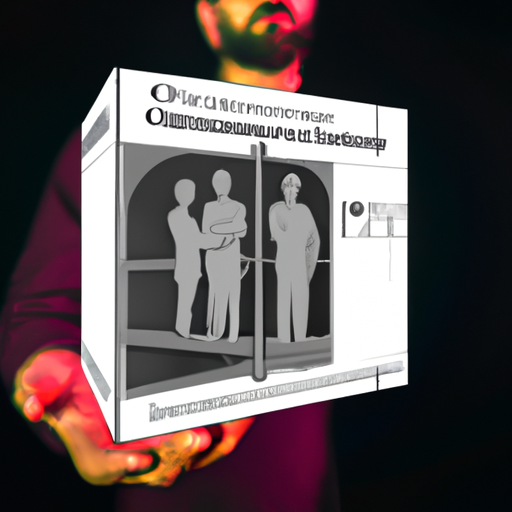Imagine a future where artificial intelligence reaches unimaginable heights, where machines possess the ability to solve complex problems at an astonishing speed. This is the incredible potential that quantum computers bring to the field of AI. As these revolutionary machines continue to push the boundaries of technology, the impact on the future of AI is both profound and exhilarating. With their unparalleled computational power and ability to process vast amounts of data simultaneously, quantum computers hold the key to unlocking unprecedented advancements in AI capabilities. In this article, we will explore the fascinating relationship between quantum computers and AI, and delve into the transformative possibilities that lie ahead.
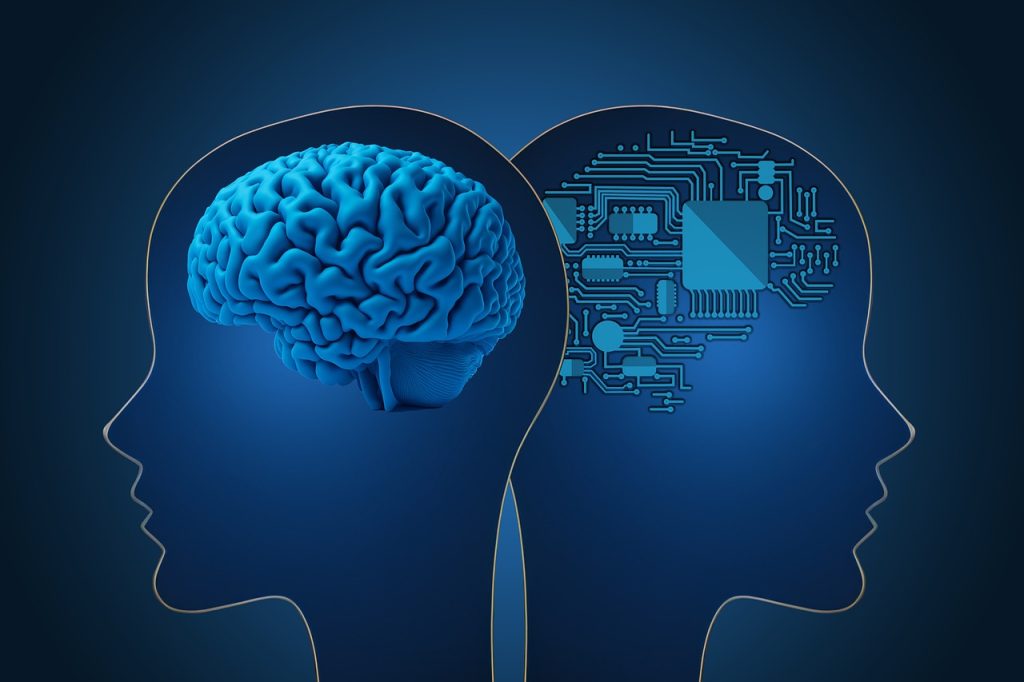
Understanding Quantum Computers
What is a quantum computer?
A quantum computer is a type of computer that operates on the principles of quantum mechanics. Unlike classical computers, which use bits to represent information as either a 0 or a 1, quantum computers use qubits (quantum bits) that can represent information as both 0 and 1 simultaneously. This phenomenon, known as superposition, allows quantum computers to perform calculations in parallel and potentially solve complex problems much faster than classical computers.
How does a quantum computer work?
Quantum computers rely on the principles of superposition, entanglement, and interference to perform calculations. Superposition allows qubits to exist in multiple states simultaneously, while entanglement enables the correlation between qubits regardless of their physical separation. Through interference, quantum computers can combine and manipulate these states to perform computations.
Quantum computers use quantum gates, which are similar to the logic gates in classical computers, to manipulate qubits. These gates allow operations such as superposition, entanglement, and measurement to be carried out on the qubits.
Advantages of quantum computers
Quantum computers offer several advantages over classical computers. One of the main advantages is their potential to solve complex problems much faster than classical computers. Quantum computers can process vast amounts of information simultaneously due to superposition and entanglement, making them well-suited for tasks that require massive computational power, such as optimization and cryptography.
Another advantage of quantum computers is their ability to simulate complex systems. Quantum simulation can provide insights into the behavior of molecules, materials, and physical systems that are difficult or impossible to observe directly. This has applications in areas such as drug discovery, material design, and climate modeling.
Limitations of quantum computers
Despite their potential, quantum computers also face several limitations. One of the main challenges is maintaining the delicate quantum state of qubits. Interactions with the external environment can cause decoherence, leading to errors in computations. Error correction techniques and noise-resistant designs are being developed to mitigate this issue, but they are still in the early stages of development.
Another limitation is the limited availability and scalability of quantum computers. Building quantum computers that operate at a large scale is a significant engineering challenge. Currently, quantum computers are mostly accessible to researchers and organizations through cloud-based platforms or specialized labs. However, efforts are being made to develop more practical and commercially viable quantum computing systems.
Quantum computers are also vulnerable to attacks. Quantum cryptography provides new ways to secure information, but it is still a developing field. Adversaries could potentially exploit vulnerabilities in quantum computers, such as the sensitivity of qubits to external disturbances, to compromise algorithms and systems.
Additionally, quantum computers require significant computational resources, including specialized hardware and cooling systems. The infrastructure needed to support large-scale quantum computing can be costly and complex, posing a challenge for widespread adoption.
Current State of AI
Overview of AI today
Artificial Intelligence (AI) is a field of computer science that focuses on the development of intelligent machines capable of performing tasks that typically require human intelligence. AI encompasses various subfields, including machine learning, natural language processing, computer vision, and robotics.
AI has witnessed significant advancements in recent years, with applications across multiple industries. From voice assistants and chatbots to autonomous vehicles and medical diagnostics, AI has already transformed various sectors and continues to shape the future of technology.
Traditional computing and AI
Traditional computing relies on classical computers that process information using binary digits (bits). In binary representation, bits can only take on two states, 0 or 1. This limits the computational power of classical computers when it comes to handling large and complex datasets or solving intricate problems.
AI algorithms implemented on classical computers can still achieve remarkable results, but their performance is bounded by the constraints of classical computation. In particular, tasks that require extensive parallel processing, optimization, or pattern recognition can be computationally demanding and time-consuming using traditional computing methods.
Machine learning and AI
Machine learning is a subset of AI that focuses on the development of algorithms and models that enable systems to learn from data, identify patterns, and make predictions or decisions without explicit programming. Machine learning algorithms can be broadly categorized into supervised learning, unsupervised learning, and reinforcement learning.
Machine learning has fueled significant advancements in AI applications. It has enabled breakthroughs in image and speech recognition, natural language processing, recommendation systems, and autonomous decision-making. By training models on large datasets, machine learning algorithms can extract complex patterns and insights that might not be readily apparent to human programmers.
However, as AI continues to evolve, researchers are exploring ways to enhance computational power and improve learning algorithms. This is where quantum computers come into play, with their potential to significantly impact the future of AI.
Potential Benefits of Quantum Computers for AI
Enhanced computational power
One of the main benefits of quantum computers for AI is their enhanced computational power. Quantum computers can perform calculations in parallel, thanks to superposition and entanglement, which allows for massive efficiency gains compared to classical computers. This means that tasks that would take classical computers years or even millennia to complete could potentially be solved by quantum computers in a fraction of the time.
With this increased computational power, AI algorithms using quantum computers can process larger datasets, analyze more complex patterns, and make more accurate predictions. This has the potential to accelerate advancements in fields such as medical research, financial modeling, and optimization problems.
Improved optimization algorithms
Quantum computers also hold promise for improving optimization algorithms, which are crucial in various aspects of AI. From logistics and supply chain management to portfolio optimization and machine learning model training, optimization problems are pervasive in many industries.
Quantum computers can explore a much larger solution space simultaneously, which can lead to more efficient optimization algorithms. By harnessing the power of superposition and entanglement, quantum optimization algorithms mimic nature’s quantum processes, such as quantum annealing, to find optimal solutions more effectively.
The potential improvements in optimization algorithms using quantum computers can enable faster and more accurate decision-making, resource allocation, and system design across numerous applications.
Simulation of complex systems
Simulating complex systems is another area where quantum computers can benefit AI. Quantum simulators can model physical systems at a quantum level, enabling scientists to study the behavior of molecules, materials, and quantum phenomena.
These simulations can aid in drug discovery, materials design, and quantum physics research. By leveraging the inherent quantum properties of qubits, quantum computers can provide insights into the behavior of systems that are difficult to observe directly, leading to breakthrough discoveries and advancements in numerous scientific disciplines.
Speeding up machine learning
Quantum computers have the potential to speed up machine learning algorithms, which can have far-reaching implications across various industries. Machine learning relies on processing large amounts of data and optimizing models to make accurate predictions or decisions.
By leveraging the immense computational power of quantum computers, machine learning tasks such as training deep neural networks, clustering large datasets, and anomaly detection can be significantly accelerated. The parallelism and optimization capabilities of quantum systems can enable faster convergence and more accurate models, leading to improved performance in AI applications.
Challenges and Limitations
Error correction and decoherence
Maintaining the fragile quantum state of qubits is one of the significant challenges in quantum computing. Interactions with the environment can cause decoherence, disrupting the quantum state and leading to errors in computations. Error correction techniques are being developed to mitigate this issue, but they require additional qubits and complex error detection schemes.
Developing error-resistant qubits and efficient error correction protocols are critical for the scalability and reliability of quantum computers. Overcoming these challenges is essential to ensure the feasibility and practicality of quantum computing for AI applications.
Availability and scalability
The availability and scalability of quantum computers pose another challenge. Building and maintaining quantum computing systems is still a complex and expensive endeavor. Most practical quantum computers are currently only accessible through cloud platforms, which limits their availability to researchers and organizations.
Achieving scalable quantum computers that can handle real-world problems and datasets remains a significant hurdle. Large-scale quantum systems with thousands or millions of qubits and efficient quantum error correction methods are necessary for widespread adoption in AI and other domains.
Vulnerability to attacks
Quantum computers also introduce new vulnerabilities to security systems. Quantum algorithms, such as Shor’s algorithm, have the potential to break many of the cryptographic protocols used today. This could jeopardize sensitive information and undermine existing security infrastructure.
Developing quantum-resistant encryption methods and cryptographic protocols is crucial to ensure the security and privacy of data in the future quantum-powered AI era. Researchers are actively exploring post-quantum cryptography as a solution to address this emerging challenge.
High computational requirements
Quantum computers have high computational requirements, not only in terms of hardware but also in terms of software and algorithms. Developing efficient quantum algorithms that can harness the power of quantum computers is a complex task. Mapping classical algorithms to quantum counterparts and optimizing them for quantum hardware can be challenging and computationally expensive.
Furthermore, quantum computers require specialized infrastructure, including advanced cooling systems and ultra-stable environments, to maintain the delicate quantum state of qubits. These hardware requirements add to the complexity and cost of developing and deploying quantum computers for AI applications.
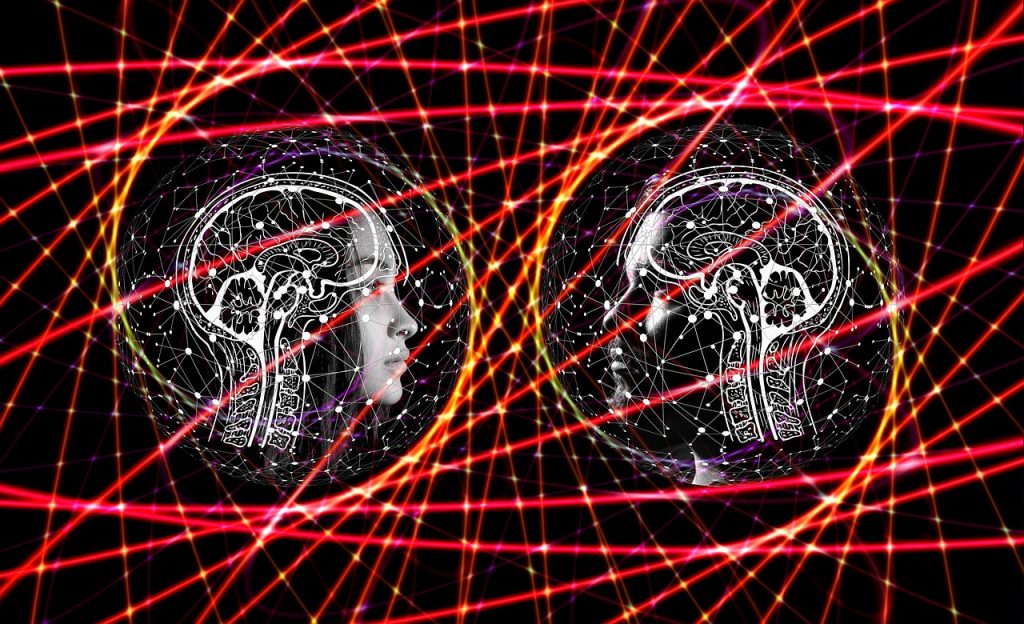
Quantum Machine Learning
Introduction to quantum machine learning
Quantum machine learning is an emerging field that combines quantum computing with machine learning techniques. It aims to leverage the unique properties of quantum systems to enhance and accelerate the capabilities of traditional machine learning algorithms.
Quantum-based algorithms for machine learning
Quantum machine learning involves the development of novel algorithms that utilize the inherent advantages of quantum computing to tackle machine learning problems more efficiently. These algorithms often exploit the parallelism and optimization capabilities of quantum computers to process large datasets and solve complex optimization problems.
Quantum algorithms such as quantum support vector machines, quantum neural networks, and quantum variational algorithms are being explored for various machine learning tasks, including classification, regression, clustering, and generative modeling.
Applications of quantum machine learning
Quantum machine learning has the potential to impact several domains:
-
Drug discovery: Quantum algorithms can assist in the design and optimization of molecular structures for drug development. By simulating quantum systems, quantum machine learning can enhance the accuracy and efficiency of drug discovery pipelines, potentially leading to faster and more effective drug development processes.
-
Finance: Quantum machine learning can be applied to portfolio optimization, risk assessment, and algorithmic trading to improve investment strategies and financial decision-making. The enhanced computational power of quantum computers can enable more accurate modeling of financial markets and complex financial systems.
-
Image and speech recognition: Quantum algorithms can enhance image and speech recognition tasks by processing and analyzing large databases more efficiently. Quantum machine learning can potentially improve the accuracy and speed of various computer vision and natural language processing applications.
-
Optimization: Quantum optimization algorithms can be used to solve complex optimization problems in logistics, supply chain management, and scheduling. By leveraging the parallelism and optimization capabilities of quantum systems, these algorithms can find optimal solutions more efficiently, reducing costs and increasing efficiency.
Quantum Neural Networks
Evolution of neural networks
Neural networks are a key component of modern machine learning and AI. They are inspired by the structure and function of the human brain, consisting of interconnected nodes (neurons) that process and transmit information. Neural networks have demonstrated remarkable capabilities in tasks such as image and speech recognition, natural language processing, and game-playing.
Introduction to quantum neural networks
Quantum neural networks (QNNs) are an extension of classical neural networks that leverage the power of quantum computing. QNNs employ quantum properties such as superposition and entanglement to enhance the capabilities of traditional neural networks.
QNNs can potentially handle more complex and high-dimensional data by leveraging the parallelism and optimization capabilities of quantum systems. They offer the possibility of increased computational efficiency and improved learning capabilities compared to classical neural networks.
Advantages of quantum neural networks
Quantum neural networks offer several advantages over classical neural networks:
-
Improved processing speed: Quantum neural networks can exploit the inherent parallelism of quantum computers to process information more efficiently. This can lead to faster training and inference times, enabling real-time or near-real-time applications.
-
Enhanced learning capacity: The use of qubits in quantum neural networks allows for a higher degree of representational complexity. This can enable QNNs to learn and model more intricate patterns and relationships in data, potentially leading to improved performance in tasks such as image recognition, language translation, and recommendation systems.
-
Increased computational power: Quantum neural networks can tap into the enhanced computational power of quantum computers to handle larger and more complex datasets. This enables the training of more accurate and robust models, paving the way for breakthroughs in AI applications.
Challenges in implementing quantum neural networks
Implementing quantum neural networks faces several challenges:
-
Hardware constraints: Building quantum computers with a sufficient number of qubits and low error rates is still a significant engineering challenge. The limited qubit count and error rates in current quantum hardware impose constraints on the size and complexity of quantum neural networks that can be implemented.
-
Noise and decoherence: Quantum systems are prone to noise and decoherence, which can introduce errors in computations. Designing efficient error correction and error mitigation techniques is crucial to ensure the accuracy and reliability of quantum neural networks.
-
Training algorithms: Developing efficient training algorithms for quantum neural networks is an ongoing research area. Mapping classical gradient-based optimization methods to work with quantum systems and optimizing them for quantum hardware pose challenges that need to be addressed.
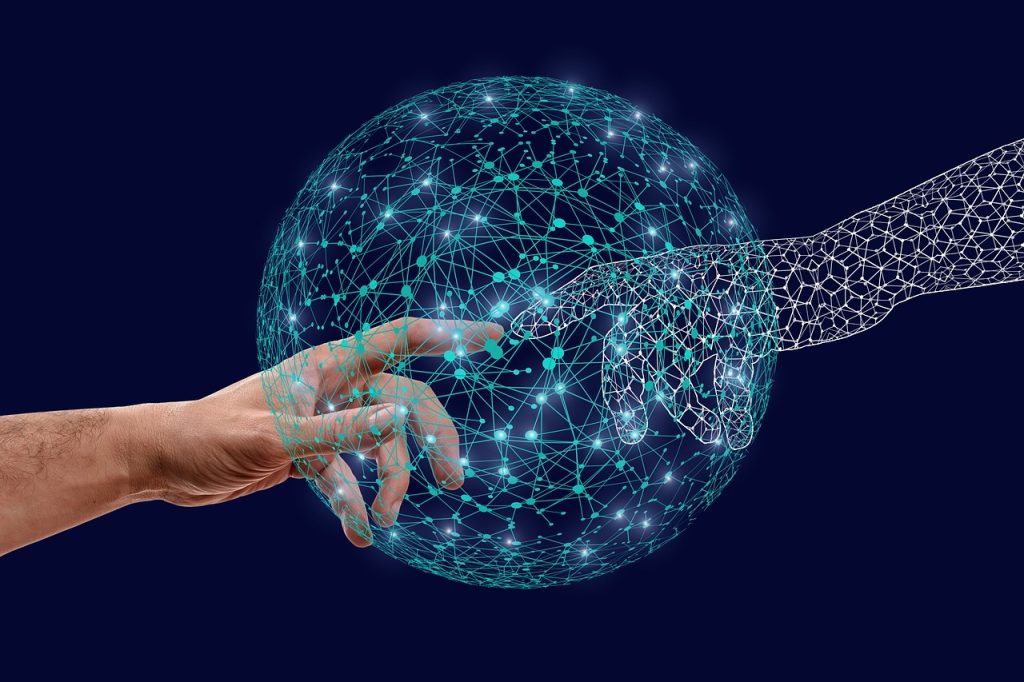
Quantum Computing and Natural Language Processing
Current state of natural language processing
Natural Language Processing (NLP) is a subfield of AI that focuses on enabling computers to understand, interpret, and generate human language. NLP has made significant advancements in areas such as sentiment analysis, machine translation, question-answering systems, and chatbots.
However, there are still challenges in NLP, including language understanding, semantic comprehension, and context-based reasoning. The current state-of-the-art models, such as transformer-based architectures like BERT and GPT, have made great strides, but there is room for improvement.
How quantum computing can impact NLP
Quantum computing has the potential to impact NLP in several ways:
-
Enhanced language modeling: Quantum computers can potentially enable more sophisticated language models that can handle the complexity and ambiguity of natural languages more effectively. Quantum-based language models can leverage quantum properties to capture the intricacies of language and improve tasks such as question-answering, text generation, and summarization.
-
Enhanced information retrieval: Quantum algorithms can enhance information retrieval in NLP applications. Quantum-based search algorithms can potentially process large volumes of text data more efficiently, providing faster and more accurate search results.
-
Semantics and context understanding: Quantum computers may help address challenges related to semantics and context-based reasoning in NLP. Quantum-inspired algorithms can potentially improve the understanding of linguistic nuances, enable more accurate word embeddings, and enhance context disambiguation in language understanding tasks.
Quantum-based language models
Quantum-based language models aim to leverage the unique properties of quantum computing to enhance language understanding and generation tasks. These models can be developed using quantum-inspired algorithms or by mapping language models to quantum architectures.
Quantum-based language models have the potential to improve tasks such as machine translation, sentiment analysis, text summarization, and document classification. By harnessing the parallelism and optimization capabilities of quantum systems, these models can potentially generate more accurate and context-aware outputs.
Quantum-inspired algorithms for NLP
Quantum-inspired algorithms can also benefit NLP tasks. By borrowing concepts from quantum computing, such as the superposition and entanglement of states, these algorithms can tackle problems like sentiment analysis, text classification, and entity recognition efficiently.
Quantum-inspired algorithms can potentially improve computational efficiency, optimize feature selection, and enhance the accuracy of NLP models. Such algorithms can also aid in the development of quantum-enhanced search engines and recommendation systems by enabling faster and more accurate text processing.
Quantum Computing and Robotics
Current trends in robotics
Robotics is a rapidly evolving field that encompasses the design, development, and deployment of physical machines capable of performing tasks autonomously or under human control. Robotics finds applications in areas such as manufacturing, healthcare, exploration, and agriculture.
Current trends in robotics include advancements in autonomous navigation, human-robot interaction, swarm robotics, and machine learning-based control systems. These advancements have allowed robots to perform increasingly complex tasks, adapt to dynamic environments, and interact with humans more effectively.
Quantum-inspired algorithms for robotics
Quantum computing can offer new tools and techniques to enhance robotics:
-
Sensor fusion and perception: Quantum algorithms can enable more efficient sensor fusion and perception tasks in robotics. The parallelism and optimization capabilities of quantum systems can improve the processing of sensor data, leading to faster and more accurate perception systems for robots.
-
Motion planning and optimization: Quantum-inspired algorithms can enhance motion planning and optimization in robotics. These algorithms can solve complex optimization problems, enabling robots to find optimal trajectories, avoid obstacles, and perform tasks more efficiently.
-
Control and decision-making: Quantum computing can impact control and decision-making processes in robotics. Quantum reinforcement learning algorithms can potentially enable robots to learn complex behaviors and adapt to changing environments more efficiently.
Applications of quantum computing in robotic systems
Quantum computing finds applications in various aspects of robotic systems:
-
Simulating and optimizing robot behavior: Quantum simulation can provide insights into the behavior of robotic systems, enabling engineers to optimize and improve their performance. Quantum computing can simulate physical interactions, sensor response, and robot dynamics more accurately, leading to better-designed robotic systems.
-
Optimal path planning: Quantum optimization algorithms can enhance path planning for robots, leading to more energy-efficient and optimal trajectories. This can be beneficial in applications such as autonomous vehicles, warehouse automation, and precision agriculture.
-
Autonomous decision-making: Quantum algorithms can empower robots with more efficient decision-making capabilities. By leveraging parallel processing and optimization capabilities, robots can analyze large amounts of data in real-time, adapt to changing conditions, and make more informed decisions.
Quantum computing holds the potential to revolutionize the field of robotics by enabling more sophisticated and intelligent robotic systems.
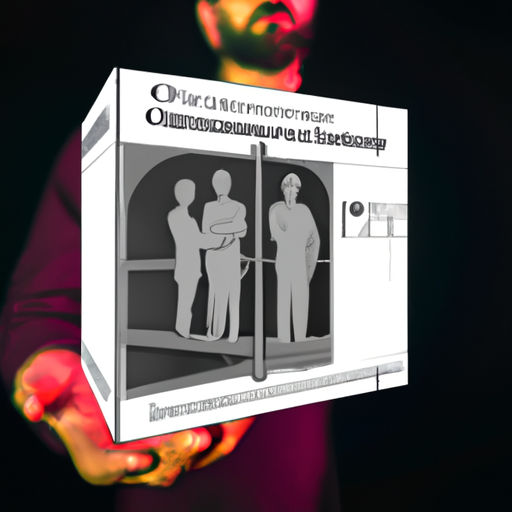
Ethical Considerations
Potential risks and ethical challenges
The intersection of quantum computers and AI raises various ethical considerations and potential risks:
-
Job displacement: The advanced computational power and optimization capabilities of quantum computers may result in job displacements in industries heavily reliant on labor-intensive tasks. Society will need to address potential job losses and facilitate retraining programs to ensure a smooth transition to a quantum-powered future.
-
Access and equity: As quantum computers become more prevalent, ensuring equitable access becomes essential. Widening the technological gap or creating monopolies could further exacerbate existing social and economic inequalities. Measures must be taken to prevent access disparity and ensure equitable distribution of quantum-powered AI benefits.
-
Ethical use of AI: The greater computational power and speed offered by quantum computers could enable the development of AI systems with unprecedented capabilities. Ensuring the ethical use of AI and preventing misuse or biased decision-making becomes even more critical as AI becomes more powerful.
Privacy and security implications
As quantum computers can potentially break many current cryptographic protocols, privacy and security concerns must be addressed. Quantum-resistant encryption methods need to be developed to safeguard sensitive data and prevent unauthorized access. Additionally, quantum cryptography can provide new ways to secure information, but it is still an evolving field and requires further research and standardization.
Quantum-powered AI systems may also introduce privacy risks by processing and analyzing massive amounts of user data. Maintaining privacy and data protection becomes crucial to avoid potential breaches or misuse of personal information. Robust privacy preservation techniques need to be integrated into quantum AI systems to ensure the trust and confidence of users.
Fairness and bias in quantum-powered AI
As with any AI systems, fairness and bias must be addressed in quantum-powered AI. Biases in data and algorithmic decision-making can lead to unfair outcomes, perpetuating existing inequalities. Efforts should be made to mitigate biases and ensure fairness in the design and deployment of quantum-powered AI systems.
Auditing and monitoring of quantum-powered AI systems becomes crucial to detect and rectify biases or discriminatory practices. Transparent and explainable AI models can help identify underlying biases and ensure that decision-making processes are fair and accountable.
Future Prospects and Conclusion
Emerging developments in quantum computing for AI
Several areas of research and development are shaping the future of quantum computing for AI:
-
Quantum error correction: Improving error correction techniques and developing fault-tolerant quantum systems are critical for the scalability and reliability of quantum computers. Advances in fault-tolerant quantum computing could enable large-scale quantum systems capable of handling complex AI tasks.
-
Quantum algorithms and software tools: Continued research is needed to develop efficient quantum algorithms and software tools for machine learning, optimization, language processing, and other AI tasks. Fine-tuning these algorithms to work with quantum hardware and maximizing their computational efficiency are ongoing challenges.
-
Hardware advancements: Advances in quantum hardware, such as increasing qubit count, reducing error rates, and improving coherence times, are essential for the practical implementation of quantum computing for AI. Progress in hardware design and engineering will play a crucial role in realizing the full potential of quantum-powered AI.
Expected impact on various industries
The intersection of quantum computers and AI has the potential to revolutionize various industries:
-
Healthcare: Quantum-powered AI can greatly impact healthcare by accelerating drug discovery, improving diagnostics, and enabling personalized medicine. Quantum simulations can provide insights into intricate biological processes, leading to breakthroughs in understanding and treating diseases.
-
Finance: Quantum computing can augment financial modeling and optimize investment strategies. Enhanced computational power and optimization algorithms can lead to more accurate risk assessment, portfolio optimization, and fraud detection.
-
Energy and materials: Quantum simulations can aid in the development of new materials and efficient energy systems. By understanding quantum processes and simulating complex molecular interactions, quantum-powered AI can contribute to renewable energy solutions and the design of more sustainable materials.
-
Transportation and logistics: Quantum optimization algorithms can improve route planning, logistics optimization, and supply chain management, leading to more efficient and environmentally friendly transportation systems. Quantum-powered AI can enable real-time decision-making and adaptive routing for autonomous vehicles and intelligent transportation systems.
Closing thoughts on the future intersection of quantum computers and AI
The future intersection of quantum computers and AI holds immense potential for transforming various industries and solving complex problems. With enhanced computational power, improved optimization algorithms, and the ability to simulate complex systems, quantum computing can advance the capabilities of AI systems and accelerate progress in science, technology, and society.
However, significant challenges such as error correction, scalability, security, and ethical considerations need to be overcome. Collaborative efforts among researchers, policymakers, and industry stakeholders are required to address these challenges and ensure the responsible and beneficial integration of quantum computers and AI.
The future of quantum computing and AI is exciting and promising, and it is crucial to navigate this intersection with careful considerations, transparency, and a focus on generating positive impact for individuals, communities, and the world as a whole.






